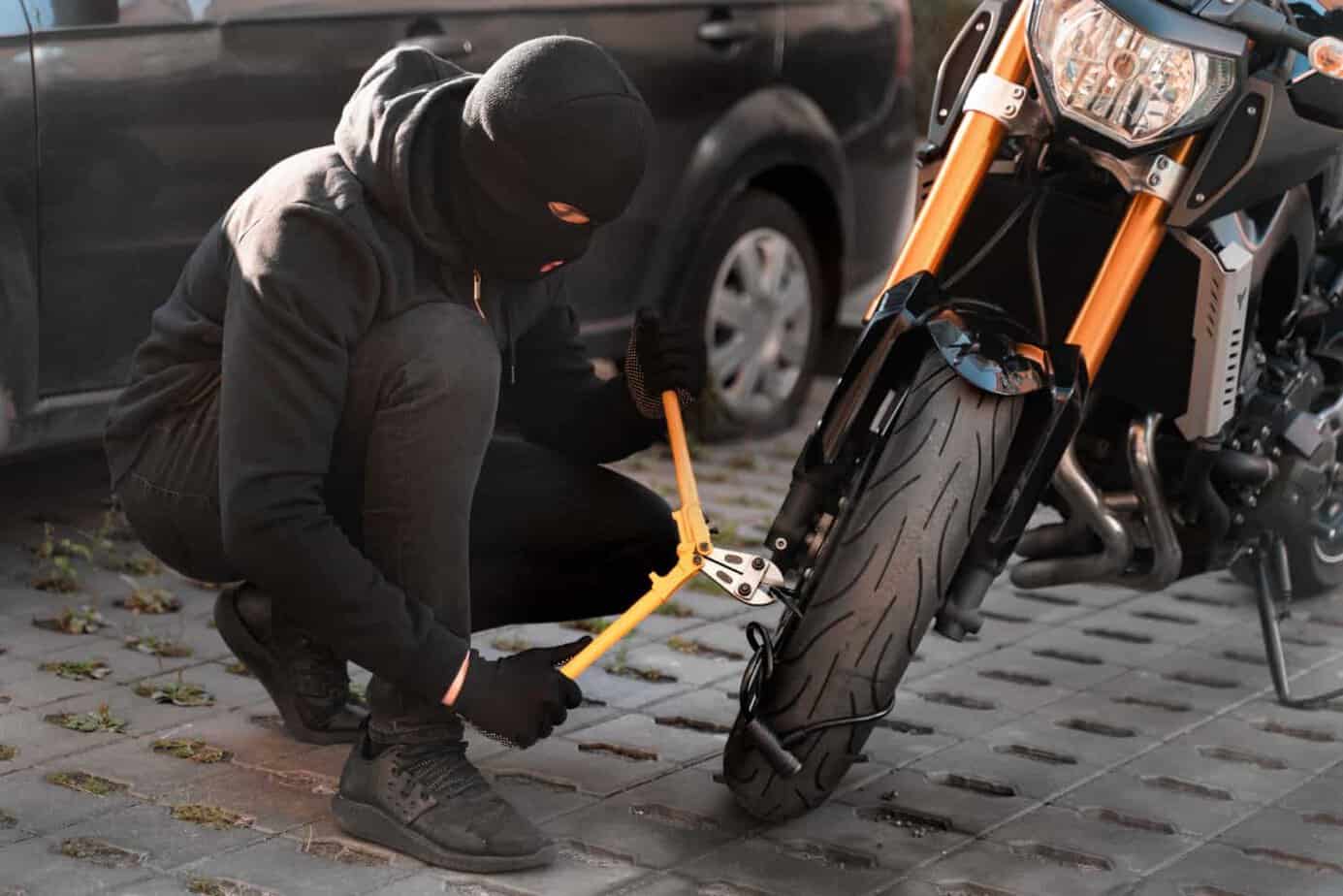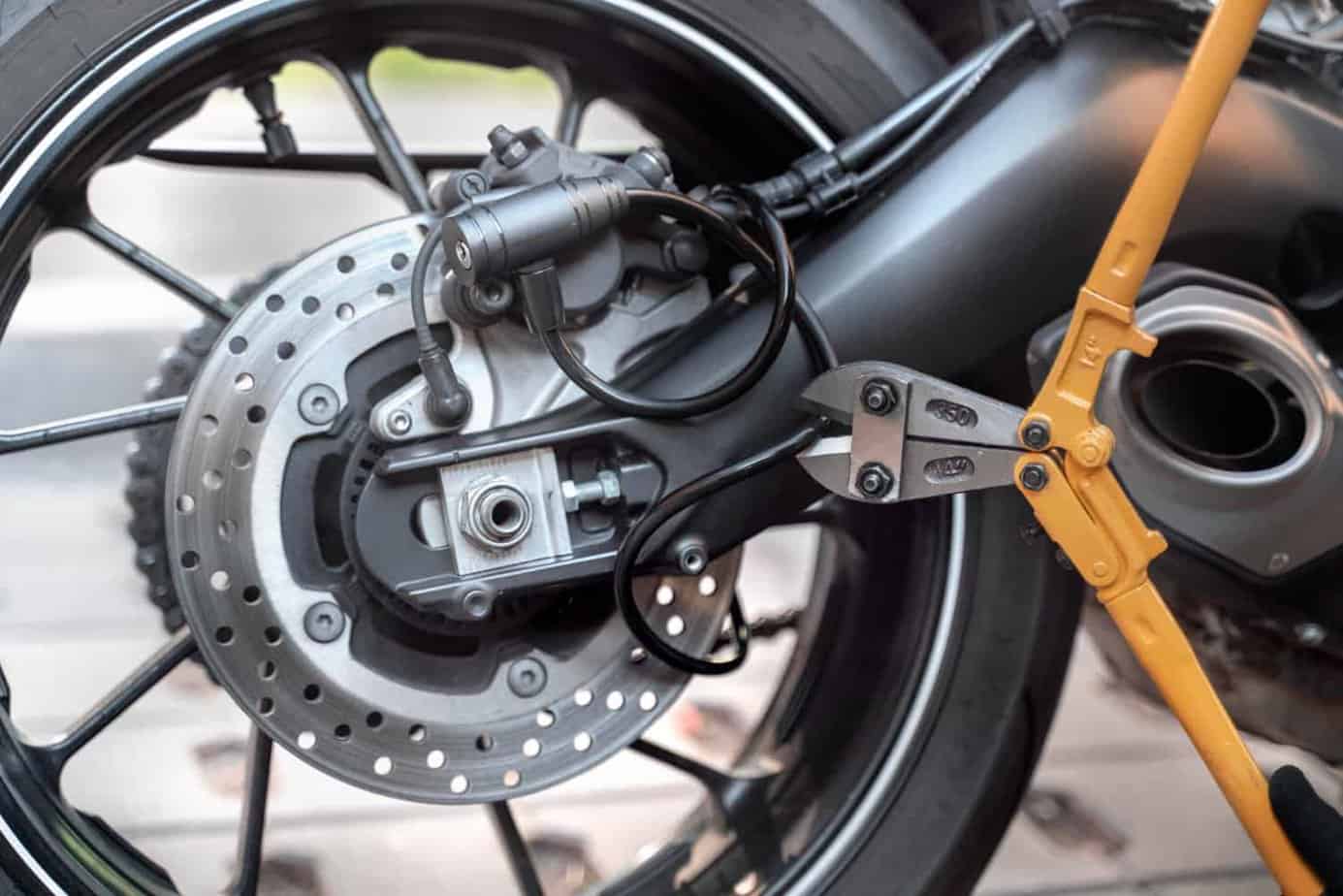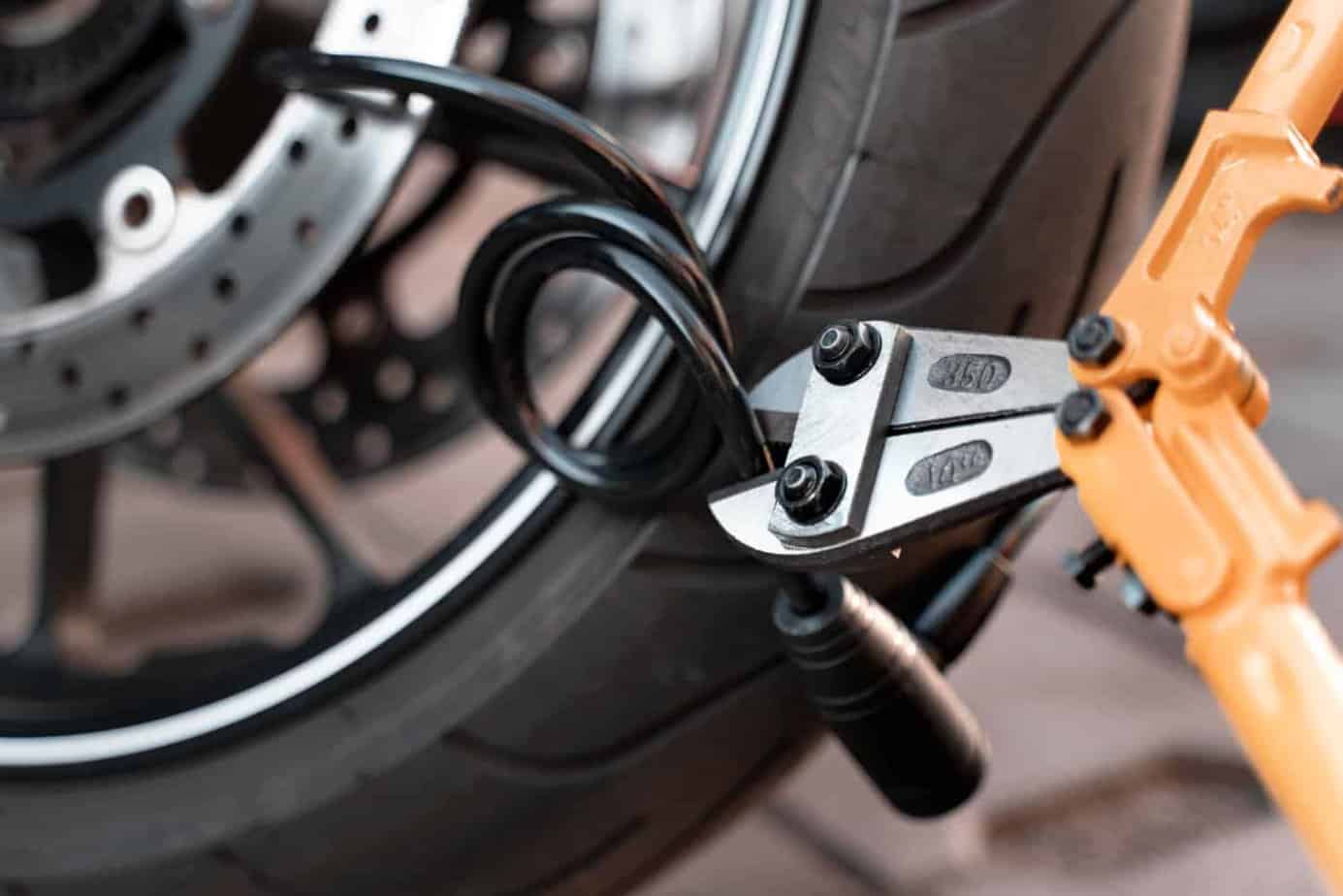Motorcycle Insurance fraud is another aspect of motorcycle theft that complicates the issue and has significant financial implications for both insurance companies and policyholders. Motorcycle owners, criminals, and even dishonest repair shops can be involved in fraudulent activities related to motorcycle theft. Understanding the various ways insurance fraud can manifest is essential to combating it effectively.
Types of motorcycle theft-related insurance fraud:
- Owner fraud: In some cases, motorcycle owners may stage the theft of their bikes to collect insurance money. This can involve intentionally damaging or abandoning the motorcycle, falsely reporting it as stolen, or even collaborating with criminals to steal and sell the bike. Motivations for owner fraud can include financial gain, escaping debt or loan obligations, or disposing of a motorcycle that has become too expensive to maintain or repair.
- Criminal fraud: Professional thieves and criminal organizations may engage in insurance fraud by stealing motorcycles and then manipulating the insurance claims process. This can involve altering the motorcycle’s Vehicle Identification Number (VIN) or forging ownership documents to sell the stolen bike back to the insurance company, or even to the original owner.
- Repair shop fraud: Some dishonest motorcycle repair shops may engage in insurance fraud by collaborating with thieves to acquire stolen bikes or parts at a reduced cost. They then use these components to repair other motorcycles and charge the insurance companies full price for the parts and labor.
Strategies to combat motorcycle theft-related insurance fraud:
- Improved motorcycle security: By implementing robust anti-theft measures such as locks, location tracking, and immobilizers, motorcycle owners can deter theft and reduce the opportunities for insurance fraud. Encouraging the use of these security devices and promoting awareness of their effectiveness can help curb fraudulent activities.
- Effective claims investigation: Insurance companies need to thoroughly investigate theft claims to identify potential fraud. This may involve verifying the circumstances of the theft, checking for signs of staging, and examining the motorcycle’s history and ownership records. Collaborating with law enforcement agencies and sharing information can also be helpful in uncovering fraudulent schemes.
- Education and awareness campaigns: Both insurance companies and law enforcement agencies can work together to educate motorcycle owners about the risks and consequences of insurance fraud. Public awareness campaigns can encourage responsible behavior and discourage fraudulent activities.
- Regulation and oversight of repair shops: Ensuring that motorcycle repair shops operate ethically and transparently can help prevent their involvement in insurance fraud. Licensing, regulation, and regular inspections can ensure that repair shops adhere to industry standards and best practices.
- Stronger penalties for insurance fraud: Implementing harsher legal penalties for individuals and organizations involved in motorcycle theft-related insurance fraud can act as a deterrent for potential criminals. This may include fines, imprisonment, or license revocation for repair shops found guilty of fraudulent activities.
In conclusion, motorcycle theft and insurance fraud are closely intertwined, and addressing one issue can have a positive impact on the other. By promoting better security measures, conducting thorough investigations, raising public awareness, and enforcing strict regulations, the prevalence of motorcycle theft and insurance fraud can be significantly reduced.

Meet Simon, the 46-year-old aficionado behind YourMotoBro. With a lifelong passion ignited by motocross dreams and a Canadian Tire bicycle, Simon’s journey has been nothing short of extraordinary. From coaching underwater hockey to mastering muddy terrains, he’s an authority in thrill and adventure. Certified as an Off-Road Vehicle Excursion Guide and trained in Wilderness First Aid, Simon’s love for bikes is as diverse as his collection—from a robust BMW GSA R1200 to the memories of a Harley Davidson Night Train. By day a respected telephony consultant, by night a motorcycle maestro, Simon’s tales are a blend of expertise, resilience, and undying passion. ?️✨









